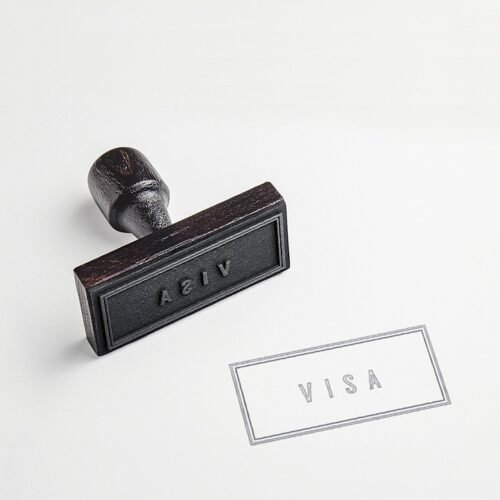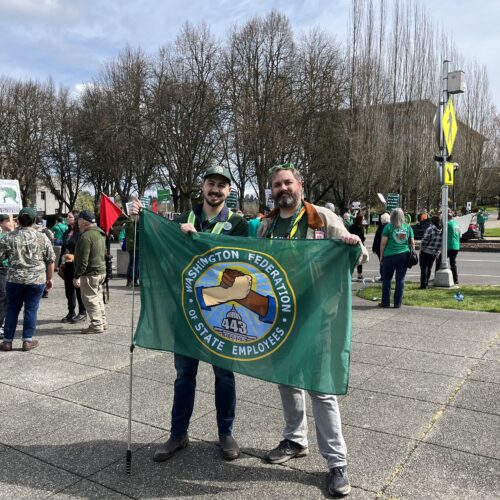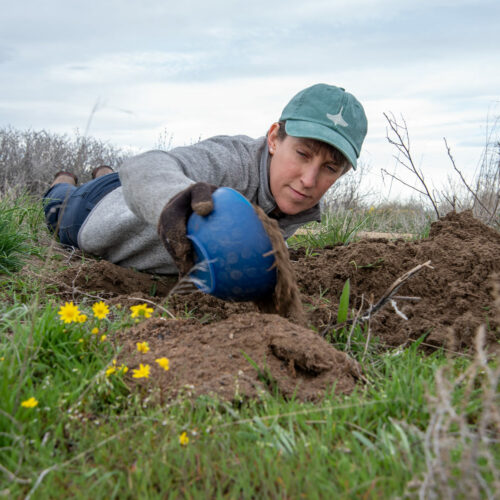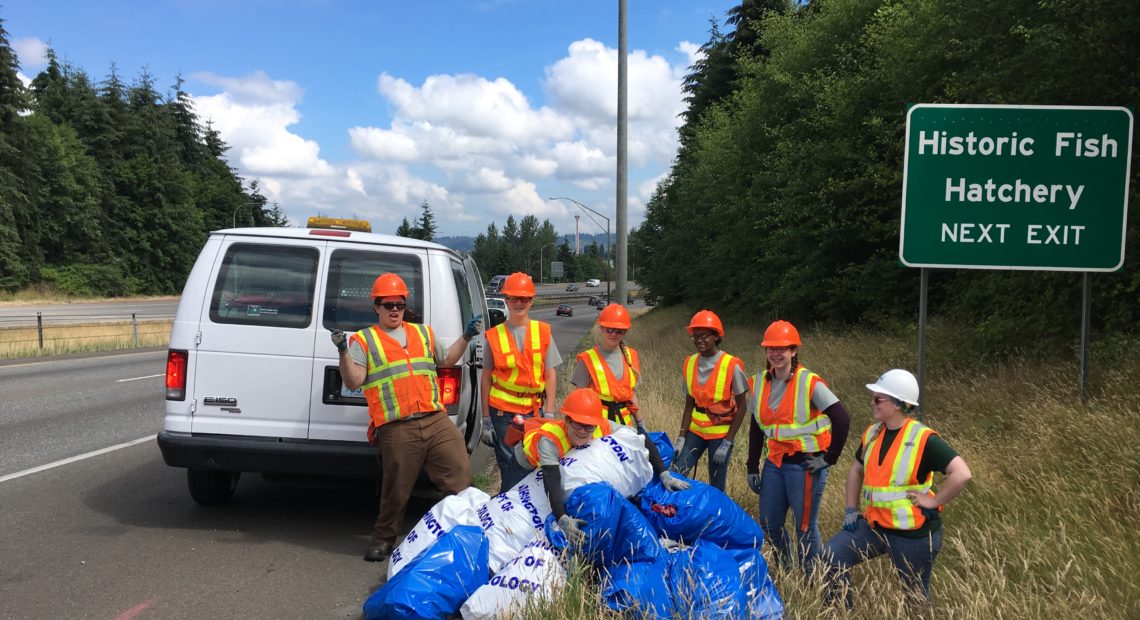
Washington High Schoolers Won’t Get Litter Crew Jobs This Summer — But Adults Can Apply
READ ON
QUICK LINK:
-Info On Washington Adult Litter Crews
Students hoping to work with the Washington Department of Ecology this summer will have to put their plans on hold until next year. The news may be frustrating to students, but it comes as statewide unemployment claims have seen an unprecedented spike.
The state runs a competitive (and paid) summer program, where teens age 14-17 help pick up roadside litter. Ecology usually hires 350 to 400 students across Washington each summer. Last year, 1,100 students applied for the Ecology Youth Corps statewide.
Laurie Davies, Ecology’s Solid Waste Management Program Manager, said the agency usually recruits students through schools, which have closed for at least six weeks to prevent the spread of the coronavirus.
“Our primary responsibility is the safety of our crewmembers. This decision was made out of an abundance of caution and only after much consideration of our current situation,” Davies said.
Student crews usually work along state highway shoulders for three weeks each summer, so more students can work in the program throughout the summer.
“This is often the first job a 14-year-old has ever had,” Davies said. “They learn how to apply for a job. They learn how to interview for a job. They are taught safety skills.”
Davies said Ecology will bring the student crews back next summer. The youth hiring program has been in place since 1975.
Instead, Ecology will hire more adult crews, ages 18 and up, to pick up litter. There won’t be as many openings as with youth workers because the adults will work longer than three weeks, Davies said.
Four adult crews were already hired when Gov. Inslee issued his “stay at home” order, Davies said. Once that order is lifted, the department will bring those crews back to work and continue to fill the other litter crew positions for the summer.
Fewer adults will be hired per litter pickup van, to help abide by social distancing guidelines of six feet or more.
“We do hope to have additional crews, but it won’t be as many employees,” Davies said.
In Washington, unemployment claims jumped more than eight-fold in the last week. In that time, 133,464 Washingtonians filed for first-time unemployment benefits.
Davies estimates there may be eight additional adult crews hired around the state. The state recruits adult workers through places such as job and employment security centers.
“It’s hard and chaotic kind of work, when you’re picking up litter along an interstate,” Davies said. “Any displaced worker from COVID-19 is more than eligible to apply. We will definitely look to try to find as many of those people to put back to work.”
More information will soon be available on its website. Regional coordinators listed on the site can answer any questions right now, spokesman Dave Bennett said.
Other litter crews are still supervised through the state Department of Corrections: one crew east of the Cascades, one out of Tacoma and one out of Monroe, Washington. Ecology also provides funds to the Department of Natural Resources for work camps and local governments, which run county litter crews – often as work release from county jails.
This year, the department received enough funding to bring back its litter prevention campaign, “Litter and It Will Hurt.” It’s been a decade since the last campaign, which was proven to reduce littering across the state.
Related Stories:
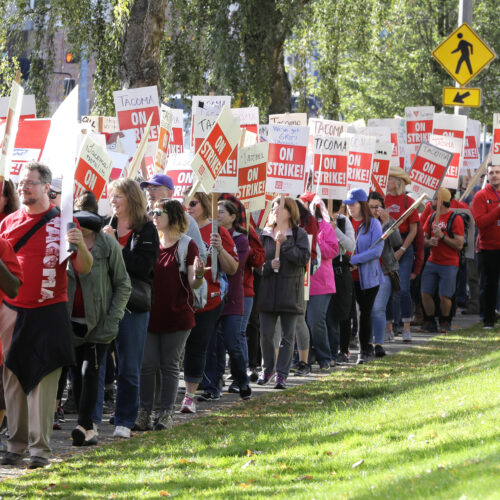
Unpacking Senate Bill 5041: Unemployment benefits for striking workers
Striking teachers march around the Tacoma School District Central Administration Building, Sept. 10, 2018, in Tacoma, Wash. (Credit: Ted S. Warren / AP) Listen (Runtime 4:28) Read By Phineas Pope
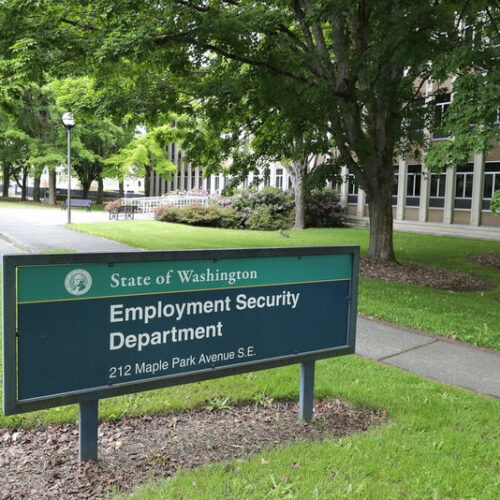
Washington Auditor Says State Unemployment Fraud Likely Much Higher Than $647 Million
The amount of fraudulent payments of unemployment benefits distributed in Washington state during the height of the coronavirus pandemic was likely higher than the $647 million identified by the Washington state Employment Security Department, according to a new set of reports released by the state auditor’s office Tuesday.
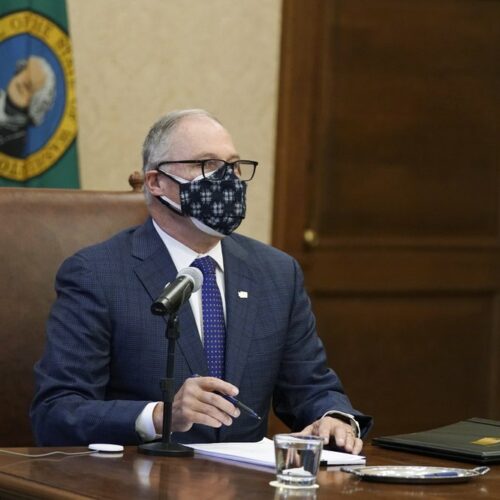
Governor Signs Bill To Help Washington Businesses, Workers With Unemployment Benefits
A bill that increases the minimum weekly benefit for unemployed workers during the ongoing coronavirus pandemic and prevents a dramatic increase in unemployment taxes paid by businesses was signed into law Monday by Washington Gov. Jay Inslee.



